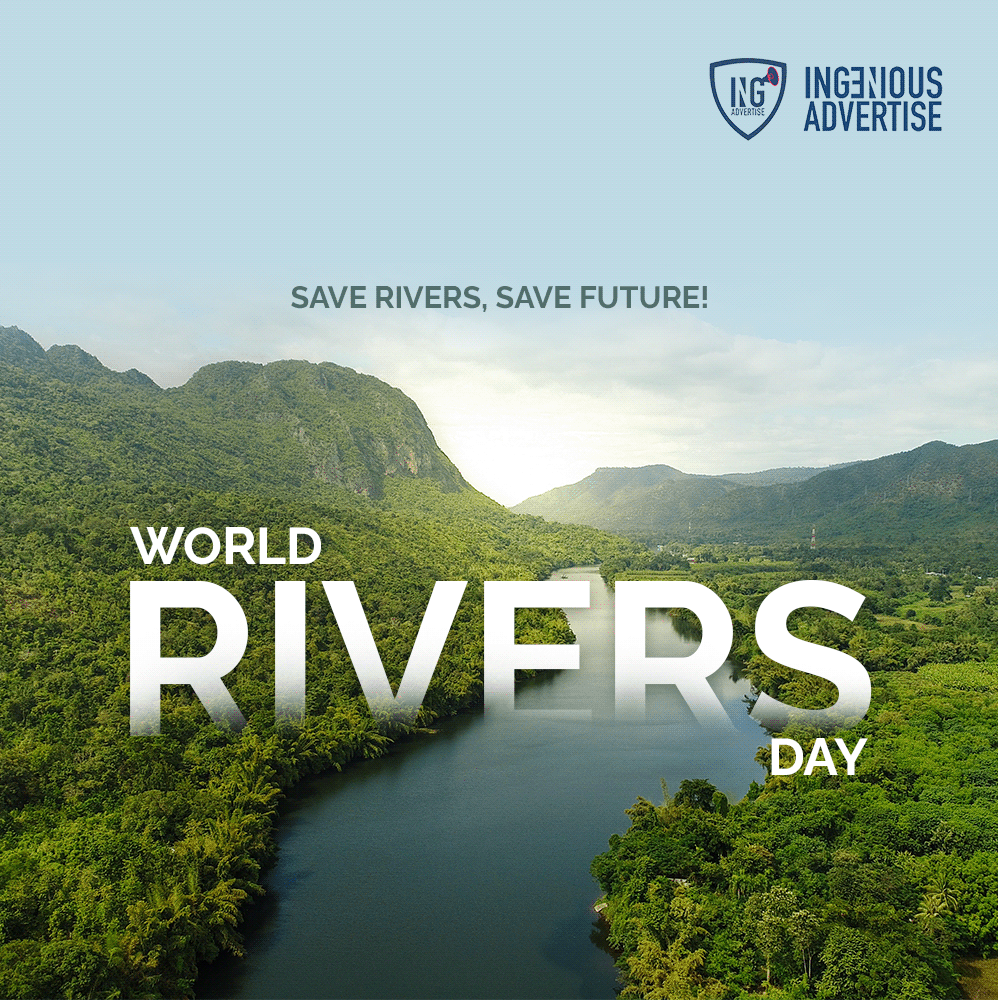World Rivers Day, celebrated annually on the fourth Sunday of September, is a global event dedicated to raising awareness about the importance of rivers and advocating for their protection and sustainable management. This day emphasizes the critical role that rivers play in our ecosystems, economies, and communities, and highlights the need for concerted efforts to preserve these vital water sources.
The Significance of Rivers
Rivers are essential to life on Earth, providing a wide range of ecological, economic, and social benefits. They serve as critical sources of freshwater for drinking, agriculture, and industry. Additionally, rivers support diverse ecosystems that include various species of fish, birds, plants, and other wildlife. They also play a key role in shaping landscapes, influencing climate patterns, and facilitating transportation and trade.
Challenges Facing Rivers
Despite their importance, rivers face numerous threats due to human activities. Pollution from industrial runoff, agricultural chemicals, and untreated sewage can degrade water quality and harm aquatic life. Deforestation and land use changes can lead to soil erosion and increased sedimentation, which can disrupt river ecosystems. Additionally, the construction of dams and other infrastructure can alter river flow patterns and impact the natural habitats of many species.
Climate change also poses a significant threat to rivers. Rising temperatures and changing precipitation patterns can affect river flow, water temperature, and the timing of seasonal events such as fish migrations. These changes can have far-reaching consequences for both the environment and human communities that depend on rivers for their livelihoods.
World Rivers Day Initiatives
World Rivers Day serves as a platform for various activities and initiatives aimed at promoting river conservation and sustainable management. Events often include river clean-up campaigns, educational programs, community engagement activities, and advocacy efforts. These initiatives help raise awareness about the importance of rivers and encourage individuals and communities to take action to protect and restore them.
-
Education and Awareness: Educational programs and campaigns play a crucial role in informing the public about the value of rivers and the challenges they face. By increasing awareness, World Rivers Day aims to inspire individuals to make more informed choices and engage in river conservation efforts.
-
Community Involvement: Community engagement is essential for effective river management. Local groups, organizations, and individuals often organize events such as river clean-ups, tree planting, and restoration projects. These activities not only improve the health of rivers but also foster a sense of stewardship and connection to local water resources.
-
Advocacy and Policy: Advocacy efforts on World Rivers Day often focus on influencing policy and decision-making related to river management. This may involve lobbying for stronger environmental regulations, promoting sustainable land use practices, and supporting initiatives that address the impacts of climate change on rivers.
The Path Forward
The long-term goal of World Rivers Day is to ensure that rivers continue to provide essential services and support vibrant ecosystems for future generations. Achieving this goal requires a multifaceted approach that includes strengthening regulations, investing in sustainable practices, and fostering collaboration among governments, businesses, and communities.
Conclusion
In summary, World Rivers Day is a vital occasion for highlighting the importance of rivers and advocating for their protection and sustainable management. By raising awareness, promoting community involvement, and supporting policy initiatives, this day contributes to the broader goal of preserving these invaluable water resources for the benefit of both people and the environment. Through collective action and commitment, we can work towards a future where rivers continue to thrive and sustain life on our planet.

